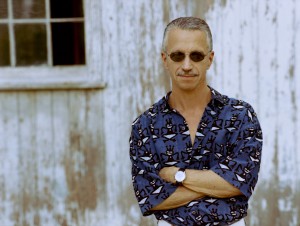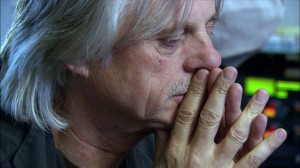November 19, 2011.
Keith Jarrett had performed hundreds of solo concerts, but not like this. From backstage he could hear the buzz in the auditorium, the voices carrying just enough to catch the mellifluous Portuguese lilt that surrounded him everywhere he went. Even the name of the city, Rio de Janeiro, was like music. Now he was about to embark on another night of entirely improvised solo piano, but this was different.
He had eschewed a proper sound-check to avoid filling his head with musical thoughts. What would be would be. It reflected new confidence from a new love in his life. He rang her in Japan from backstage, as he now found himself ringing her so often. Each time she buoyed him and calmed him and strengthened him. It was just what he needed.
He had wandered on stage earlier and found he was playing an American rather than a German Steinway for the first time ever. That would be interesting. Thankfully a noise in one of the pedals was resolved without it becoming a source of angst.
Then it was time, and he went out and the man some people acclaim as jazz’s greatest pianist played as he had never played before. He was playing about Rio and its sounds and shapes, about the musically-hip audience with their pin-drop attentiveness and explosive applause, and about this piano with its uneven tonal quality that he transformed into a breadth-of-colour asset. He was also playing about his new love.
Afterwards he called the concert an “affirmation” of his entire career. It was what he had been building towards since he began playing at the age of three; since his first recital, aged seven, which not only included Mozart, Bach and Beethoven, but also his own work and, crucially, improvisation.
For his eighth birthday he had asked his mother and father for a walkie-talkie, an elephant or a piano. The latter duly arrived, paid for out of his own concert earnings. He loved it so much he took to sleeping under it.
The prospect of interviewing Jarrett was clouded with accounts of monosyllables and disdain. He sounds suspicious when he picks up the telephone in his large New Jersey country house (with a barn converted into a studio), but swiftly warms, and talks for an hour.
“When I was a little kid and I was studying piano,” he recounts, “I would get music that would look too difficult, so occasionally I remember saying to my mother, ‘I don’t think I can play this piece.’ And she would say, ‘Can you play the first note?’ I said, ‘Yes.’ ‘Can you play the second note?’ ‘Yes.’ ‘Well then you can probably play the piece.’”
Now he has crowned his evolution as a musician with Rio, the double album of that concert last April.
Born in 1945, Jarrett passed through the bands of Art Blakey, Charles Lloyd and Miles Davis, and in 1971 made an album of solo piano improvisations for Manfred Eicher’s fledgling ECM label. This proved a signal event. A stream of concerts in this format followed, including 1975’s Koln Concert (which has sold over 3.5 million copies), alongside his stellar bands and occasional classical performances.
It all came crashing down in 1996 when he was diagnosed with Chronic Fatigue Syndrome. “This disease stopped me dead. I could only look at my piano. I couldn’t touch it,” Jarrett recalls. Not knowing if he would ever play again, many things became clear. “One of those things was I really hated my previous recordings,” he says, then gives a short laugh. “Not hated, but I thought, ‘If this is all of my work, it’s not enough.’” He found his playing too busy, for example, and wanted to improvise without resort to a pre-existing vocabulary of ideas; to always reach for the new; reach for what happened in Rio.
“It’s proof that what I spend my time doing can work like that,” says Jarrett. “The only thing is that it can’t work just because you want it to work… It takes a certain amount of crazy convergences of reality…
“I remember feeling strangely at ease when I went out on stage, and all the way there was a lack of a certain kind of stress. My wife had left three years ago. I have someone who’s been giving me more hope than I thought I would get from any person. This of course can help me stay relaxed, and if an improviser’s stressed out on stage, the music isn’t going to come.”
 That “someone” is his new Japanese fiancée, Akiko. “If I talked to her on the way out to the stage, or backstage between sets, I would get this complete feeling of support,” he enthuses.
That “someone” is his new Japanese fiancée, Akiko. “If I talked to her on the way out to the stage, or backstage between sets, I would get this complete feeling of support,” he enthuses.
They met when Jarrett walked into a shop where she was working in Japan. He kept returning during his stay, and found she knew his name, but nothing of his work. On the last day his tour assistant told him to go down to the shop while she packed. “I said, ‘Wait, no, no, no, I don’t do dates! Don’t leave me!’ I suddenly am at the elevator going down alone to meet her.” Jarrett disabused Akiko of her notion that his tour assistant was in fact his partner, and then they said goodbye with a hug that was “full of stuff that meant more than I could figure out, and we parted, and I couldn’t let that go.
“So I just started calling her all the time. In the beginning she said, ‘Oh, Keith, what’s wrong? Why are you calling me?’ ‘Nothing’s wrong. I don’t know why I’m calling you. Really, I don’t want to lose you, and I don’t think I have you at the moment.” He laughs. “You could write a book about this.”
Or a record. Luckily all Jarrett’s concerts are recorded, and he immediately became addicted to listening to this one. “I never did that in my life,” he exclaims, “and I’ve had a long solo career.”
He was so excited that he called Manfred Eicher from Rio airport and told him to cancel all their plans. Rio must be rush-released. Eicher obliged. Theirs has been a 40-year relationship which Jarrett describes as “mysterious”. The whole oeuvre of Jarrett performing solo piano improvisations may never have happened had he not fallen in with Eicher and ECM.

“No one would have done it,” Jarrett insists. “Forget the 10-record set [Sun Bear Concerts] that he and I put together, no one would have done the three-record set [Solo Concerts: Bremen Lausanne]. I remember Manfred and I were sitting in the studio in the ’70s when Solo Concerts was released, and [guitarist] Ralph Towner walked in, and he sat there listening, and he said, ‘Wow, that’s great, man. But you’re going to release a three-record set? There’s no other instruments and there’s no singing and you’re going to release it?’ And Manfred looked at him and said, ‘We think it’s good’'” Jarrett laughs. “And that’s the reason for everything we release.”
When Jarrett received a finished copy of Rio Akiko asked him how it felt. “I think she thought I’d say ‘Exciting’,” he suggests, “but I think she suspected it was a complicated feeling. And I said, ‘Nervous’… The natural thing is to be sitting there with this in your hands going, ‘Will they get it?’ I did my job. But now it’s out there.”
And he can’t control that part.